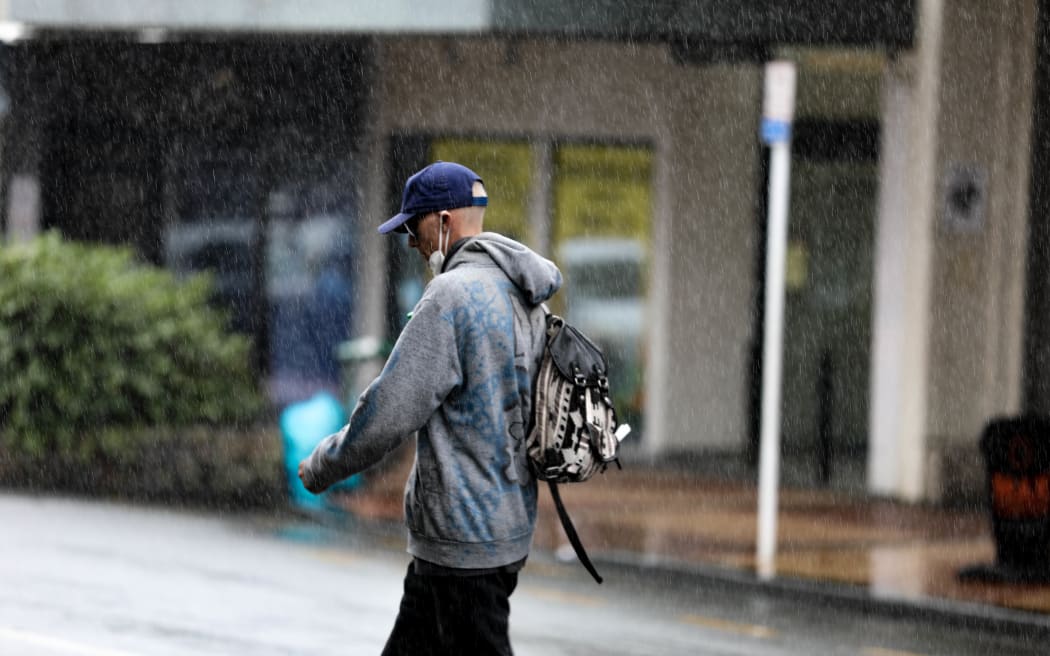Lifestyle
Advocates Call for Action on Māori Youth Homelessness Crisis

Youth homelessness advocates are urging immediate action to address the alarming rise in homelessness among young Māori in Auckland. Recent reports highlight a staggering 90 percent increase in homelessness since September 2023, with approximately half of the homeless population under the age of 25. This issue, described as complex and multifaceted, has been worsened by changes to emergency housing criteria implemented last year.
One prominent voice in the effort to combat this crisis is Māhera Maihi, CEO of the Mā te Huruhuru Charitable Trust. Maihi operates two youth housing initiatives that adopt a kaupapa Māori approach, focusing on culturally appropriate solutions for young people facing homelessness. “Māori youth are expressing a desire for more kaupapa Māori supported accommodation,” Maihi stated during an interview with RNZ’s Saturday Morning.
Many young people are in situations that render homes unsafe and unstable, often due to factors such as family violence, breakdowns, and overcrowding. Additionally, queer and gender-diverse youth are disproportionately affected, facing unique challenges that further complicate their housing situations. “The system is difficult to navigate for these individuals,” Maihi noted, referencing barriers such as a lack of bank accounts and identification, alongside the pressing issue of affordability.
Maihi highlighted the existence of a “care-to-homelessness pipeline,” where financial pressures make it increasingly difficult for young people to secure stable housing. “They often express a desire for mana-enhancing accommodations, preferring to learn their pepeha at home rather than resorting to sleeping in cars,” she explained.
Changes in emergency housing qualifications last year have exacerbated the situation. New policies require applicants to demonstrate they did not contribute to their housing instability, along with stricter obligations to seek permanent solutions. Maihi emphasized that unlike other temporary accommodation providers, Mā te Huruhuru has achieved remarkable success with its 12-month placements, reporting zero incidents of bad behavior within their facilities.
“We understand as Māori that community involvement is essential,” Maihi said, stressing the importance of intergenerational support from elders and whānau. At He Pā Piringa, the organization provides 18 beds for homeless youth aged 17 to 21, alongside dedicated spaces for young women facing housing insecurity. This family-centered approach fosters a nurturing environment that emphasizes cultural identity and safety.
The organization employs the concept of wananga, engaging young people in cultural practices at the marae. “Participants often express feelings of belonging and respect for our kaupapa,” Maihi shared. This strong sense of community has led to impressive outcomes, with zero property damage reported and no police incidents related to violence.
Despite these successes, the full extent of youth homelessness among Māori remains unclear. Maihi pointed out the lack of official data and a focused youth homelessness strategy. Many young people do not qualify for social housing, as existing rating criteria fail to account for their vulnerabilities. “We’ve successfully placed 19 young people into permanent homes, a remarkable feat considering the challenges posed by social housing ratings,” she stated.
Maihi proposed the need for a “vulnerability multiplier” in the housing system to better accommodate the complex needs of young individuals. “If we are to use this system effectively, we must acknowledge the diverse challenges faced by youth today,” she concluded.
The call for action is clear as advocates like Maihi continue to push for solutions that not only address the immediate needs of homeless youth but also honor the cultural heritage and identity of Māori communities.
-

 World2 weeks ago
World2 weeks agoPrivate Funeral Held for Dean Field and His Three Children
-

 Top Stories2 weeks ago
Top Stories2 weeks agoFuneral Planned for Field Siblings After Tragic House Fire
-

 Sports3 months ago
Sports3 months agoNetball New Zealand Stands Down Dame Noeline Taurua for Series
-

 Entertainment3 months ago
Entertainment3 months agoTributes Pour In for Lachlan Rofe, Reality Star, Dead at 47
-

 Entertainment2 months ago
Entertainment2 months agoNew ‘Maverick’ Chaser Joins Beat the Chasers Season Finale
-

 Sports3 months ago
Sports3 months agoSilver Ferns Legend Laura Langman Criticizes Team’s Attitude
-

 Sports1 month ago
Sports1 month agoEli Katoa Rushed to Hospital After Sideline Incident During Match
-

 World3 weeks ago
World3 weeks agoInvestigation Underway in Tragic Sanson House Fire Involving Family
-

 Politics2 months ago
Politics2 months agoNetball NZ Calls for Respect Amid Dame Taurua’s Standoff
-

 Top Stories2 weeks ago
Top Stories2 weeks agoShock and Grief Follow Tragic Family Deaths in New Zealand
-

 Entertainment3 months ago
Entertainment3 months agoKhloe Kardashian Embraces Innovative Stem Cell Therapy in Mexico
-

 World4 months ago
World4 months agoPolice Arrest Multiple Individuals During Funeral for Zain Taikato-Fox



















